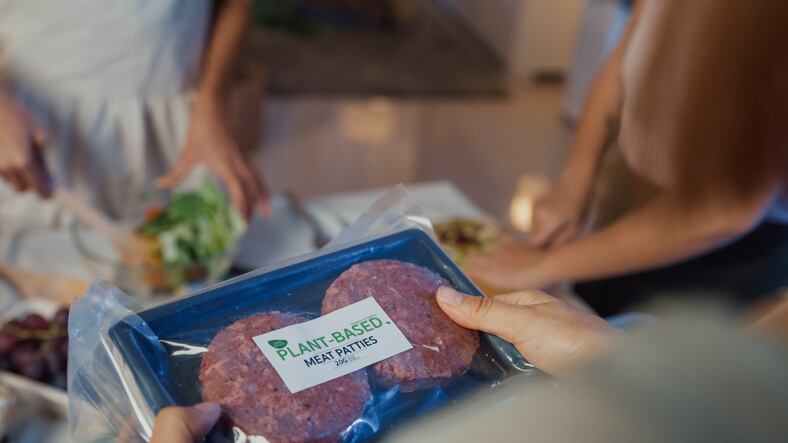Pork demand is softening so much that USDA had to step in and purchase $50 million of unwanted “surplus” pork. The nation’s largest meat producer, Tyson Foods, recently saw its share price plunge 16 percent after it revised revenue forecasts downward. Tyson is also cutting staff in substantial layoffs and is even shutting down two of its poultry slaughter plants.
“I can’t remember a time when our business faced the highly unusual situation that we’re currently seeing, where all three of our core protein categories—beef, pork and chicken—are experiencing market challenges at the same time,” Tyson CEO Donnie King recently said.
Even the seafood market is struggling in the inflationary environment, leading to a decline in seafood consumption.
Of course, no one today is writing the obituary for the meat and seafood industries, as we know that there are cycles with ups and downs, and inflation changes what people end up purchasing.
This rocky terrain for the meat industry, however, comes at a time when conditions in the plant-based meat sector aren’t exactly so rosy, either. But layoffs, low valuations, and plateaued consumer demand have led to a very different media narrative for the alt-meat sector altogether.
“Just Another Fad” is how Bloomberg described the plant-based meat movement. “Sizzled out” is what the Washington Post editorial board declared. Business Insider even headlined that the alt-meat dream “may already be dead.”
If no one’s headlining about the death of meat (although in 2015 that’s exactly what Nasdaq predicted), why are some journalists so confident that we’re witnessing the termination of an upward trend in alt-meat? (Ironically, just over a year prior to its “just another fad” article, Bloomberg was extremely optimistic about alt-meat’s future.)
When Bulls Become Bears
So why are many in the media so bearish on alt-meat today when just yesterday they were bullish?
“The inaccuracy on both ends is not a function of drastically shifting market dynamics,” Lever VC writes in a recent report. “It is a reflection of media outlets doing what they are financially incentivized to do: constructing simple and dramatic narratives that grab reader attention.”
One problem for the animal-free meat industry is that the dearth of publicly traded companies has made it seductive to judge the whole sector’s performance on that of the one publicly traded company: Beyond Meat. While it’s true that Beyond struggled in 2022, Impossible Foods reported very large sales increases in the same period. Even smaller newcomers to the market, like Daring Foods, are reporting high retail growth rates. The same is so with European alt-meat startup Heura.
Is animal-based meat doing better than plant-based meat?
No one can deny that last year was tough overall in Altmeatland, with total U.S. volume sales declining by about 5 percent in 2022. But as Lever VC points out, “Conventional meat volumes also dropped in 2022. And many higher-priced meat categories saw volume declines significantly higher than those experienced by plant-based meat.”
In 2022, higher end meat categories like dinner sausage dropped 5.1 percent in volume, bacon fell 7 percent, processed chicken descended 7.6 percent, and with seafood it was even starker.
Lever concludes: “The bottom line is that adjusted for price, plant-based meat sales volumes performed better in U.S. retail in 2022 than conventional meat. Even without adjusting for price—a major driver in food purchasing decisions—conventional meat sales volumes performed only a hair better than plant-based meat sales volumes in U.S. retail in 2022 despite the fact that the country was enduring the worst economic deterioration since 2008 and the highest inflation rates since the 1970s.”
Change Moves Slow…Until it Doesn’t
Technology takes time. At first, the change it ushers in seems slow, and then it can proceed with great haste.
It was only 2013 when the Washington Post editorial board mocked electric vehicles as “a fantasy [that] finally may have died on the road.” Fast forward exactly one decade, when, in 2023, a Washington Post editorial board writer celebrated that the EV revolution is “inevitable.”
It’s too early to tell when peace and prosperity will return to Altmeatland, but it seems fairly obvious that reports of its death are premature. But things do appear poised to get better soon.
Will Bloomberg and the Washington Post run future headlines touting the ascent of animal-free meats? We may not need to wait that long. Just four months after its “Just Another Fad” story, Bloomberg in May 2023 headlined, “Plant-Based Meat Predicted to Rebound.”



